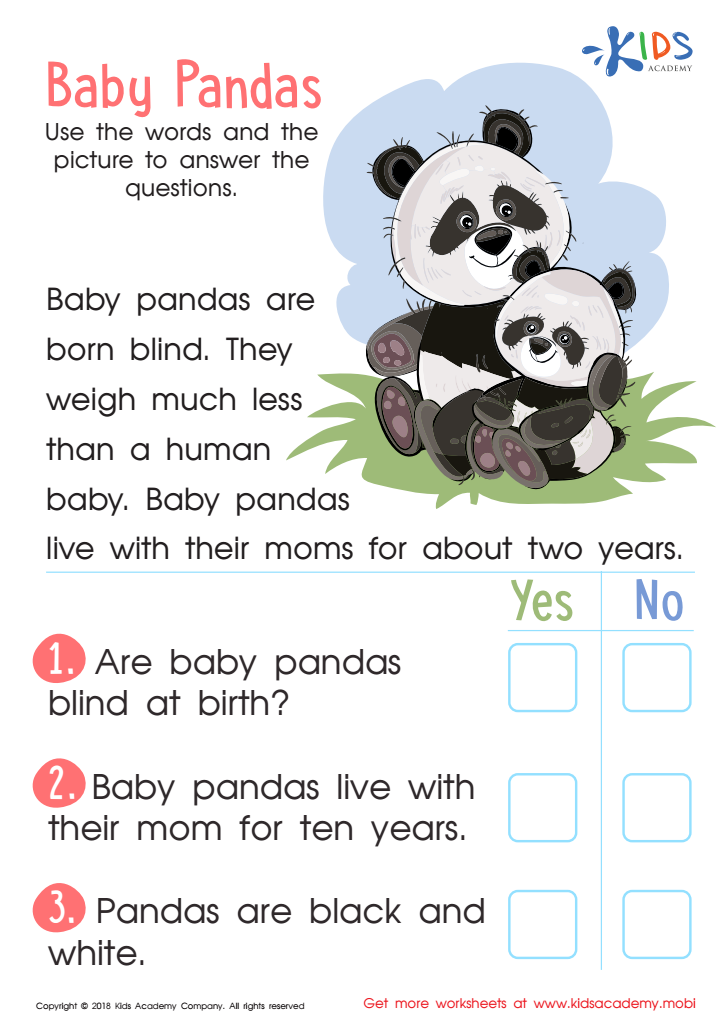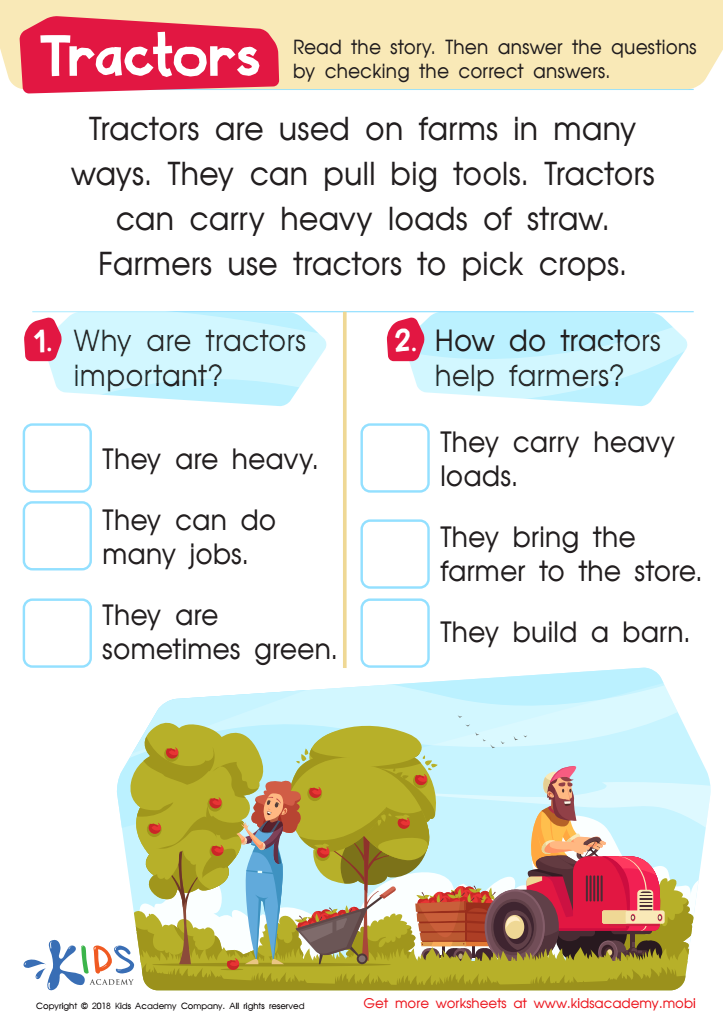Counting practice Reading Non-Fiction Worksheets for Ages 7-8
3 filtered results
-
From - To
Elevate your child's math and reading skills with our Counting Practice Reading Non-Fiction Worksheets designed for ages 7-8. These engaging activities seamlessly blend numeric exercises with captivating non-fiction texts, fostering a deeper understanding of numbers through real-world scenarios. Each worksheet promotes critical thinking by challenging young learners to read, count, and analyze data. Ideal for both classroom and at-home practice, these worksheets support curriculum standards while making learning enjoyable. Help your child build confidence in counting and improve their reading comprehension simultaneously. Explore our extensive collection to transform routine counting practice into an exciting educational adventure.


More Octopus Facts Worksheet


Baby Pandas Worksheet


Tractors Worksheet
Counting practice and reading non-fiction are essential activities for 7-8-year-olds, forming a cornerstone in their early educational development. At this age, children are in a critical period for cognitive growth, and these skills offer numerous benefits that support future academic success.
Counting practice reinforces mathematical foundations, building a child's number sense, arithmetic skills, and ability to comprehend more complex math concepts later. Engaging with counting activities helps children develop accuracy, speed, and confidence in using numbers, which translates to higher achievement in math-related subjects.
Reading non-fiction, on the other hand, nurtures a child's comprehension abilities, vocabulary, and general knowledge. Non-fiction texts expose young readers to real-world information, enhancing their understanding of various topics like science, history, and geography. This exposure not only broadens their perspective but also ignites curiosity and a love for learning. Additionally, it equips children with the ability to differentiate between fiction and facts, a critical skill for becoming discerning and informed individuals.
Combined, these practices support robust critical thinking and problem-solving abilities. Teachers and parents should prioritize these areas to cultivate a well-rounded, curious, and capable child, setting a solid foundation for lifelong learning and achievement.
 Assign to My Students
Assign to My Students















